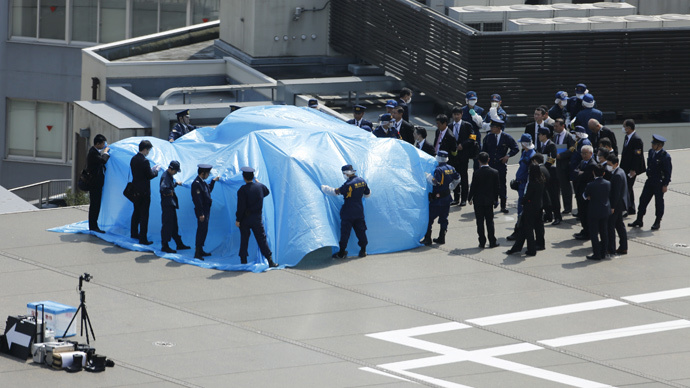Japan’s lower house passes law restricting use of drones

The lower house of the Japanese Parliament passed a law Thursday prohibiting drone flights over the prime minister’s office, the Imperial Palace and other key facilities such as nuclear plants.
The law was supported by a majority of legislators, The Japan Times reports. Now it must be passed by the upper house, which is expected to happen at the current session, which lasts until September 27.
Beside the governmental facilities, Japan bans drone flights near nuclear plants which were not included in the first draft of the law drawn up by the transport ministry and the ruling Liberal Democratic Party. Restrictions against paragliders have also been introduced.
Those who violate the new rules will fined of up to ¥500,000 (over $US 4,100) or face a sentence of up to one year behind bars.
The government is reportedly mulling over the introduction of a separate bill that would ban drone flights near airports and densely populated areas.
According to the transport ministry’s initial draft, using drones without special permission from the ministry would be banned over areas with a population density of 4,000 people per square kilometer or more. It would be also prohibited to use drones near mass public events such as festivals and exhibitions.
Drone flights over other territories would be possible at daylight hours but the devices would not be allowed to carry explosives and other dangerous objects. These restrictions would not apply to drones used by public institutions, for instance, for search and rescue operations in disasters.
Japanese authorities turned their attention to drone flights after a drone with a small amount of radioactive material from Fukushima landed on the roof of the prime minister’s office on April 22. The drone was operated by 40-year-old Yasuo Yamamoto, who wanted to express his protest against nuclear energy policy of the government.












